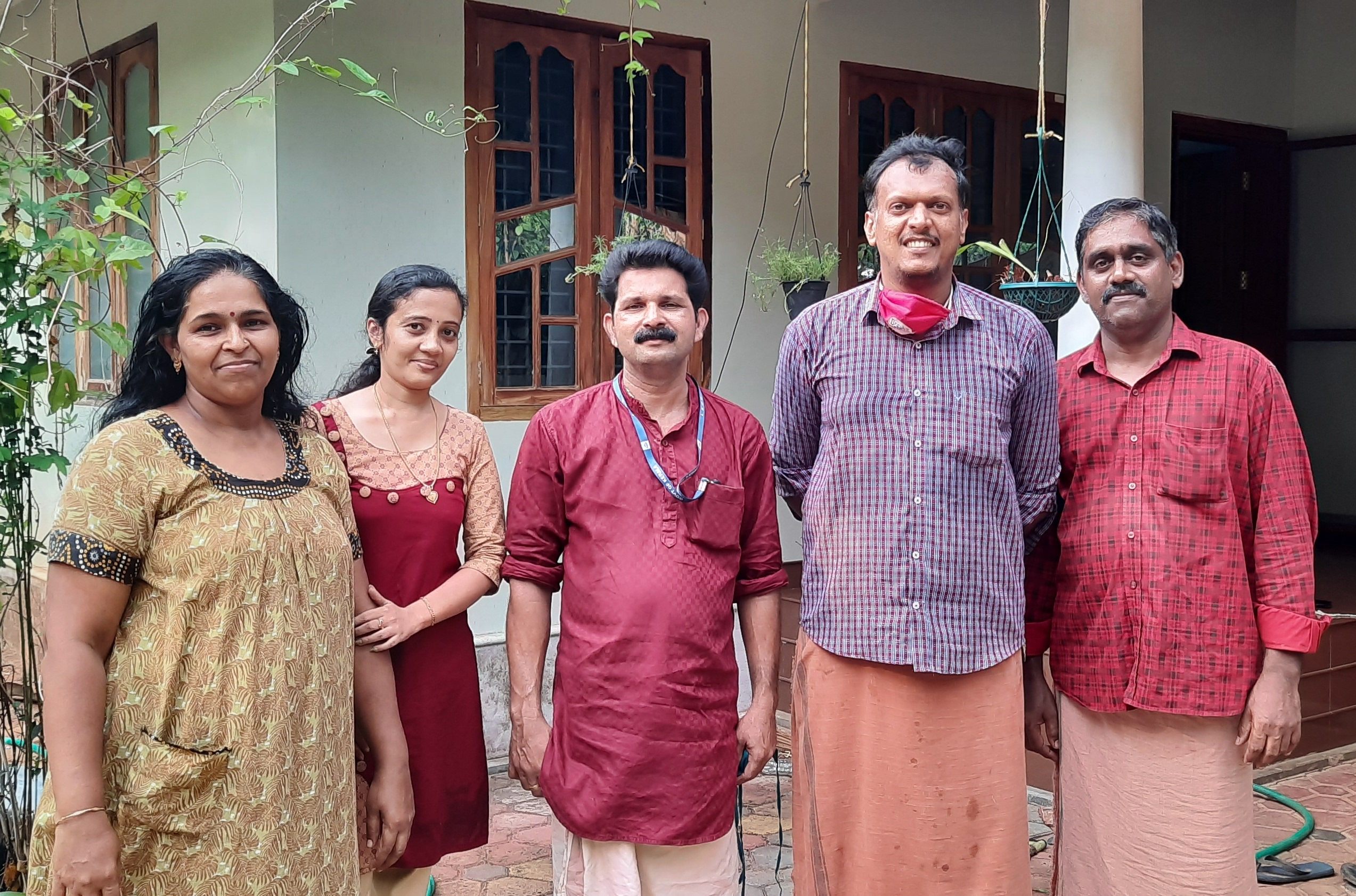Some are larger than coconuts, while others are smaller. Some have a pleasant sweet taste of cane sugar while others have a sour taste. Some are bright red and some are dull. The tiny village of Kannapuram is located in India's Kannur district in the south of the country. There are so many native mango varieties here that it's mind-blowing.
It rains mangos in Kannapuram. There are over 100 varieties of trees in the small area of Kuruvakkavu within Kannapuram. The Indigenous Mango Heritage Area of Kuruvakkavu was declared on July 22, 2020 as World Mango Day. The efforts of about 20 local families, led by a police officer, helped to make this happen.

As a child, Machathi loved mangos. During summer vacations, you had to climb mango trees and distribute the fruit to family and neighbors. During the mango season, he liked to eat, collect, and distribute different varieties. It was a time when we all ate whatever we could get our hands on.

Machathi has no experience in farming. A friend told him that a 200 year old mango tree was being cut down and that was the beginning of his mango variety preservation efforts. Machathi and a friend from the agricultural department were able to get close to 50 cuttings, which they were able to transplant and grow. He kept one for himself and gave the rest to the community so they could plant them. The mango rescue operation was covered by local news channels.
In the next year he collected and documented 36 mango varieties and organized an event to highlight the wealth of the indigenous species in the area. Locals were motivated to support Machathi because of the mango event. It was a surprise for Machathi to discover so many varieties in her own backyard. Each one has a distinct taste and flavor.
Machathi was able to identify more than 100 varieties by analyzing features such as color, taste, thickness of outer skin, fiber content, and the shape of the leaves. Locals didn't know there were so many kinds of mangoes. The village was put on a national mango map by the project. Kannapuram holds a mango fest on the first Sunday of May. A variety of mango and dishes prepared from them are on display and discussed.

The efforts of Machathi and the community took a significant turn when one of their events attracted a former Principal Scientist at the National Bureau of Plant Genetic Resources. He told Machathi to take a more scientific approach by documenting each of the varieties using photos and characteristics such as taste, color, and fiber content. A group called "Nattu Manchottil," which means "under the village mango tree," was created on Facebook. Most of the group members from Kannapuram uploaded new varieties of fruits. Machathi documented close to 150 varieties and sent them to John. These varieties have been distributed and successfully grown in different districts of the state.
The use of harmful pesticides is lessened by the distribution of native mango varieties in India. Dr. Joseph says that these varieties are resistant to pests and diseases. It is of paramount importance to preserve whatever we have today, as we have already lost a lot of our mango biodiversity due to indiscriminate rubber cultivation.

Identifying indigenous species, propagating them, and conducting chemical analysis are some of the things Machathi is doing. He estimates it to be close to 60 percent. He wants to plant 100 mango varieties in 100 plots in select districts. The mission is named after feminist environmental poet Sugutha Kumari.
Visitors will be led on a mango themed heritage walk. There are coconut palms and temples along the route. The Machathi is working on a project. The program helps people set up mango groves by giving them plants and other assistance. Machathi hopes that people will enjoy the local flavors instead of opting for commercially grown ones.
Gastro Obscura covers the world’s most wondrous food and drink.
Sign up for our email, delivered twice a week.